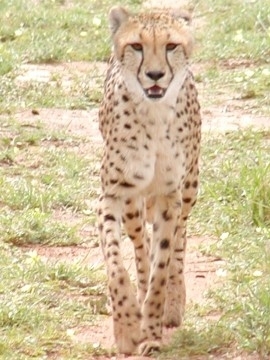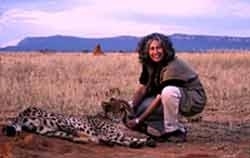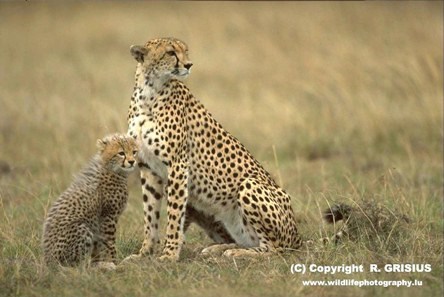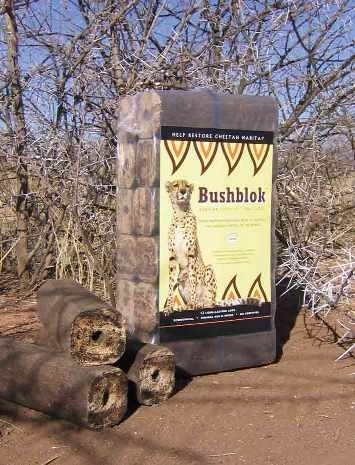 |
| Cheetah |
Like so many of the earth’s noble creatures, cheetahs, known for their agility and speed are, ironically, instead embattled in a perilous race against extinction.
This is particularly paradoxical given that cheetahs are the oldest of the big cats, having survived the longest (about 4 million years, to be exact) despite obstacles as seemingly insurmountable as the Great Ice Age. Yet, despite having numbered 100,000 at the end of the 19th century, today, there are only about 10,000 cheetahs left in the entire world.
This dramatic decrease in population is due to a variety of factors, including loss of habitat, larger predators, high infant mortality, inbreeding, and conflicts with livestock farming.
Although 20,000 years ago, cheetahs were common throughout Africa, Europe, Asia, and even North America, today, Africa, with its vast natural resources, is considered by most to be the only real hope for the survival of the species. If conservationists in southern Africa can help provide an amiable habitat and plentiful prey-base for cheetahs on the livestock farmlands, these beautiful big cats might have a chance of winning this death-defying race.
 |
| CCF's Executive Director Dr. Laurie Marker with Cheetah Ambassador Chewbaaca. |
Like its name, the Cheetah Conservation Fund has one clear and purposeful focus – the conservation of these noble felines.
In particular, The Cheetah Conservation Fund, founded by Dr. Laurie Marker in 1990, works to create long-term strategies for conservation by helping foster a more harmonious coexistence and level of understanding between local residents (villagers, ranchers, etc.) and these majestic animals, namely through education, and the implementation of better livestock management practices. CCF achieves this goal through hands-on community education programs, as well as extensive scientific research on cheetahs and their survival.
CCF’s International Research and Education Center is appropriately located in the African country of Namibia, which hosts the largest and healthiest free-range cheetah population on the planet. Namibia is home to 20 percent of the world's population, about 95 percent of which live on Namibia’s farmlands.
Yet the potential for cheetah conservation there is far greater than the current natural environment in Namibia allows for. 25 million Namibian acres are suffocated by invasive thorn bushes, which reduce soil fertility, alter the water cycle, and set off desertification, a relative death-sentence for Africa’s previously lush environments.
 |
| Cheetah and baby (R. Grisius) |
These invasive bushes also make agriculture nearly impossible, creating a territorial nightmare between humans desperate for farming and business, and animals, desperate for natural survival. In simple terms, the survival of the cheetah is in the hands of Namibia's farmers.
Keenly aware of this conflict, CCF has found a way to use technology to convert the invasive foliage into clean fuel, simultaneously benefitting humans, cheetahs, and the Namibian environment.
They do so by harvesting the otherwise troublesome bushes into environmentally-safe fuel logs. The logs burn clean and are of great benefit to local residents, and simultaneously help open up additional acreage for cheetahs and humans, alike, and help replenish the quickly-fading ecosystem.
Best of all, the conversion process from thorny bush to fuel log is far less complicated than most would imagine it to be, and requires only the plant material, heat, pressure, and natural wood resins. It is practical solutions like these that set CCF miles apart as conservation specialists -- perpetuating their vision of “a world in which cheetahs live and flourish in co-existence with people and the environment".
The wood fuel logs/briquettes also create a practical business opportunity for entrepreneurs, and employ and likewise, empower, Namibians as laborers and staffers.
 |
| BushBlok |
In doing so, CCF is also creating a practical market for biomass -- environmentally and socially-friendly products. This, in turn, motivates (and even encourages!) others to replicate and use bush wood as raw material as well, prompting new local businesses both to harvest and transport this newfound raw source. The ultimate goal of CCF is for these environmentally friendly logs to be considered an equally adequate (if not, better) product as charcoal, and firewood.
CCF sees that in order for the cheetah species to survive – and Africa to flourish – a more environmentally friendly approach to business and day-to-day existence needs to be found. Likewise, CCFs endeavours both in Namibia and in their other African locales, promote and encourage environmentally-friendly practices and products, and help educate Africans on the importance of keeping a harmonious coexistence between their own business, industrial and personal needs – and the animals and natural environment that surrounds them.
One example of their push for pro-environment business practices is Cheetah Country Beef, an eco-label partnered with CCF for Namibian farmers. Cheetah Country farmers are “certified and monitored as practicing cheetah friendly livestock management. In return for being good stewards to the land and wildlife on their farm, Cheetah Country farmers are paid a premium for the beef they sell.” Cheetah Country farmers are outwardly dedicated to the long-term survival of the cheetah.
CCF’s work has most recently been honored by the Tech Awards as an environmental laureate. This prestigious award celebrates technology used to benefit humanity, and clearly the Cheetah Conservation Fund does just that.
In fact, in doing so, CCF also benefits the farmlands of Africa, and the beautiful cheetahs that are in a race for the survival of their species.
Page created on 12/15/2008 12:00:00 AM
Last edited 12/15/2008 12:00:00 AM
